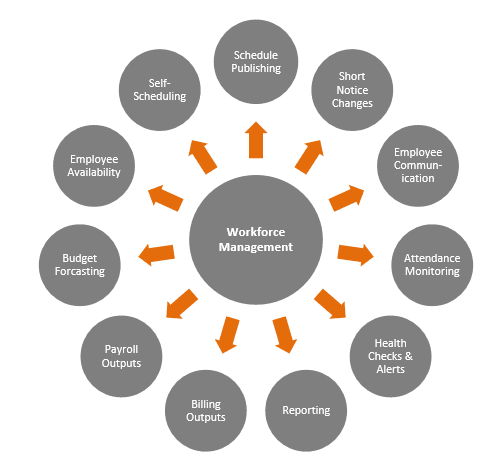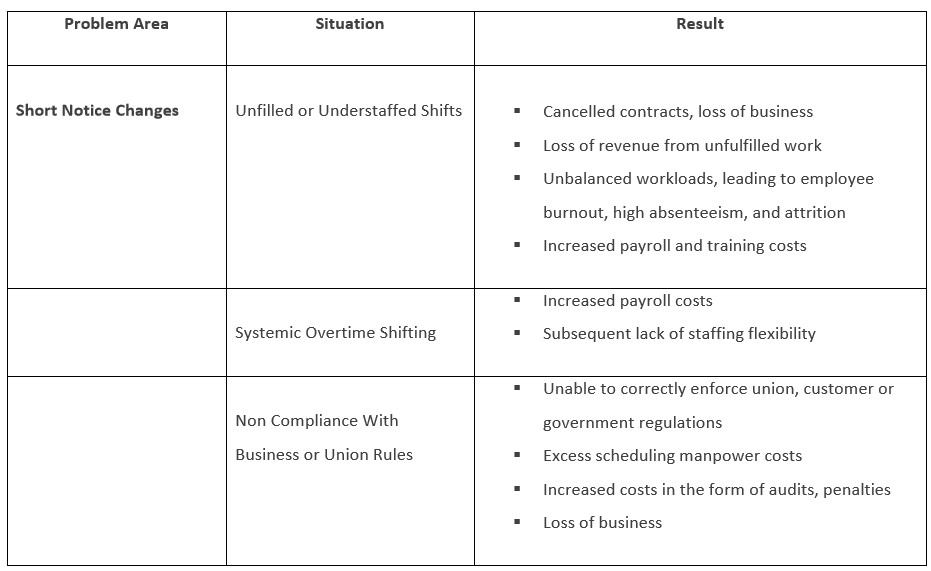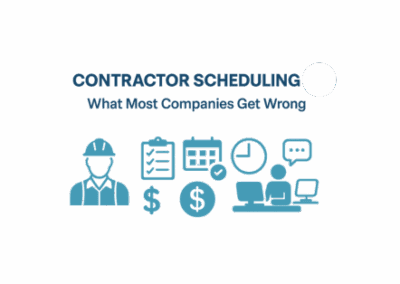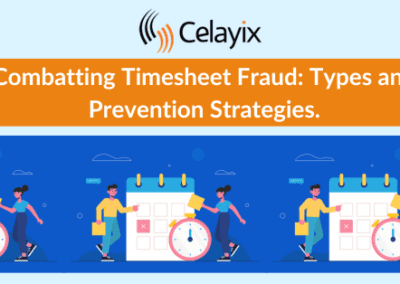Security is a labor-intensive, high turnover, low margin business. Covering shifts effectively depends on both good planning and effective management of last minute (short-notice) changes. To achieve this, businesses need to look beyond simple scheduling.
In recent years, awareness has heightened over corporate and public security. As a result, many security companies have quickly grown in size, but continue to solve problems the old way. Continuing to operate with manual, paper-based approaches to scheduling and time & attendance tracking impact all aspects of the business,
- Shifts are missed or double-booked
- Schedule creation consumes too much staff time
- Staff spend too much time on the phone making adjustments
- Scheduling errors increase overtime costs
- Managers get by with limited visibility on attendance
- Employees are frustrated by inequitable scheduling
- Staff enter the same data multiple times in scheduling, billing and payroll systems
On top of all this, companies are increasingly caught between a squeeze of tight margins, high customer expectations and a rapidly changing schedule.
At some point “status quo” no longer makes sense. Today, failure to implement affordable tools, that help plan schedules and manage disruptions, results in a loss of competitive advantage — and can even jeopardize contracts.

What is Security Workforce Management?
Workforce Management is a term used to describe employee staffing. All companies engage in workforce management in one way or another. How well you perform in these areas determines your profitability.
Workforce Management systems are called on for a wide range of needs:
- Planning and tracking qualified security personnel
- Printing auditable, up-to-the-minute coverage reports
- Providing short notification management tools that ensure coverage while limiting overtime
- Managing payroll to reduce errors and time spent on reconciliation
- Reducing time spent maintaining the schedule, increasing time to manage the business
Why Invest Now?
The right security workforce management software (WFM) will provide intuitive tools that deliver an immediate return on investment.
Better scheduling solutions can bring immediate financial gains and long-term benefits in worker productivity. In their report, investment firm Sanford C. Bernstein & Co. observed that WFM tools can “achieve the elusive and seemingly contradictory goals of lower labor costs combined with higher levels of customer service.”
To illustrate, we can look at one prominent problem in the security industry: short-notice changes in the schedule arising from last-minute client orders, sickness among employees, canceled shifts, or changed shift locations. Consider some of the implications when workforce management tools are not available:

Beyond Efficiencies
A suitable workforce management system for security maximizes efficiencies in the planning, publishing and adjustment of shifts. It also goes beyond management-side functions; employee self-serve functions bring compound benefits. Employee self-scheduling allows employees not only to input their availability, but to assign themselves for the shifts that they would like to work – reducing staff scheduling time.
The Importance of an Integrated Solution
Security companies have a lot to gain from employee-operated schedule tools. Reliable tools that capture and display actual hours worked result in fewer errors, meaning fewer time-related pay disputes. These tools take the onus off management, enhance cost efficiency, and save on administrative overhead. From a client perspective, when the system can provide on-demand audits of actual security presence, the security company’s value increases.
Communication tools like mobile apps and interactive telephone portals go further still. Employees can get their schedule, get notes, and make their schedule needs known during convenient non-work hours. The result is shared knowledge about availability, and more buy-in from staff, without management intervention.
What’s Required
Today, security companies can select workforce management solutions tailored for their industry, with a feature set that matches their specific needs. Here’s a list of workforce management system features commonly requested by the security industry:
- Automatic overtime and double booking notification
- Qualifications tracking and enforcement
- Flexible, configurable views in the scheduling platform
- Audit trails of post coverage
- Easy-to-use interface
- Automated payroll data capture and cost forecasting
- Automated alerts and rule checking
- Ability to quickly adjust levels to reflect changes in demand
- Performance and complaints tracking
- Automation of routine communications
- Management-focused reporting
- Variance analysis tools
- Integration with external enterprise tools
Conclusion
At the end of the day, security companies need a solution with an excellent return on investment.
The right solution will give your company’s planners, dispatchers and employees insight into problems that are timely and accurate. It should provide efficient tools both for planning and adjusting the plan and it should highlight relevant problems, while helping to automate compliance with business rules. Ultimately the software will help you save money, and free up management to grow the business.



